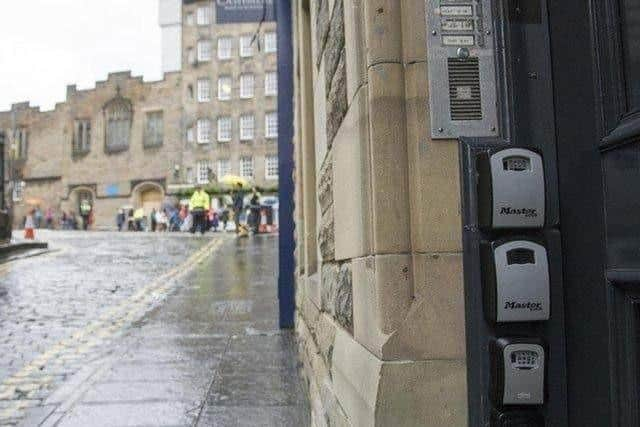Parts of short-term lets crackdown in Edinburgh ruled unlawful for second time
Parts of a crackdown on Airbnb-style lets in Edinburgh have been ruled unlawful by a judge for a second time.
A short-term let operator and a property management company had challenged the implementation of a “control area” in the city, which aims to limit the number of lets.
Advertisement
Hide AdAdvertisement
Hide AdIn a ruling issued on Friday morning, Lord Braid said Edinburgh Council’s approach threw up “inconsistencies” and was “not only unfair, but illogical”. He previously ruled against aspects of the local authority’s short-term lets licensing scheme just months before it was due to come into force.


Fiona Campbell, chief executive of the Association of Scotland’s Self-Caterers (ASSC), said the latest judgment would have “ramifications far beyond Edinburgh”.
She said: “The ASSC welcomes this judgment from Lord Braid which not only has profound implications for Edinburgh, but short-term let policy across Scotland. We pay tribute to the perseverance and determination of the two petitioners, Iain Muirhead and Louise Dickins, who have borne huge personal and financial costs once again.
“This grassroots action was not undertaken lightly, and they took the courageous decision to bring this action against Edinburgh Council to protect not only their businesses, but also an industry that is critical to both the capital’s economy and the entire tourism sector.”
The whole of Edinburgh was designated a short-term let control area in September last year. This meant any property wholly used for this purpose would require planning permission as it was “deemed to involve a material change of use of the dwelling house”.
The latest court battle centred on the scope of this measure, and whether it could be applied retrospectively where a change of use had occurred before September, as the council argued.
Rejecting this position, Lord Braid considered a hypothetical case of two operators – one of which had a certificate of lawful use before September 5, 2022 and the other which did not.
The Court of Session judge said: “The respondent (Edinburgh Council) would have it that the operator with a certificate of lawful use need not apply for planning permission, perhaps recognising that to hold otherwise would be to affect retrospectively the acquired rights of the operator in question; whereas the other operator would be bound to do so. That is not only unfair, but illogical.”
Advertisement
Hide AdAdvertisement
Hide AdLord Braid said the Scottish Parliament "did not intend” for the rules to be applied retrospectively. “Had that been its intention, it would have made that clear in express terms, or at least, language which was clearer than that used,” he said.
The judge also took issue with the council’s short-term lets application form, saying it “actively discourages” anyone from applying who does not have planning permission or an application in the pipeline, despite this not being required in every case.
James Dalgleish, planning convener for Edinburgh Council, said: “We acknowledge today’s judgment and will now consider our next steps in more detail. We introduced the short-term let control area to help us manage the number and location of STLs across the city. We continue to face uniquely difficult housing pressures with a small, but densely populated city centre and fast growing population across the city as a whole.
“We have to strike the right balance between promoting our visitor economy while looking after our residents who live here all year round and, having just announced a housing emergency, it’s more important than ever that we find ways of bringing homes back into residential use.
“It’s important to point out that, following today’s ruling, residential properties that began being used as STLs after the control area came into force on September 5, 2022 still require planning permission. Those that began before that date may still need it and will be considered on a case-by-case basis.”
Comments
Want to join the conversation? Please or to comment on this article.
